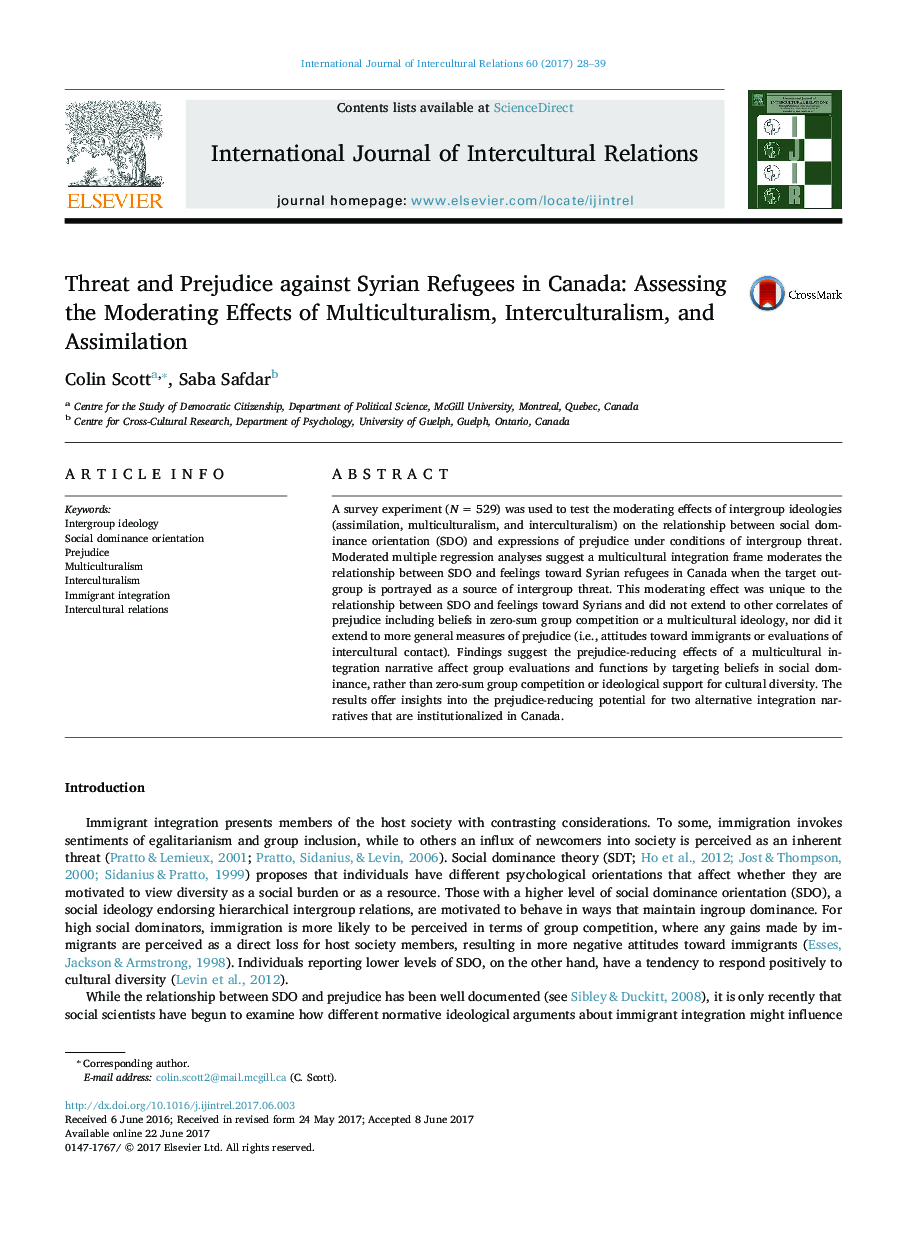| Article ID | Journal | Published Year | Pages | File Type |
|---|---|---|---|---|
| 5045531 | International Journal of Intercultural Relations | 2017 | 12 Pages |
A survey experiment (NÂ =Â 529) was used to test the moderating effects of intergroup ideologies (assimilation, multiculturalism, and interculturalism) on the relationship between social dominance orientation (SDO) and expressions of prejudice under conditions of intergroup threat. Moderated multiple regression analyses suggest a multicultural integration frame moderates the relationship between SDO and feelings toward Syrian refugees in Canada when the target outgroup is portrayed as a source of intergroup threat. This moderating effect was unique to the relationship between SDO and feelings toward Syrians and did not extend to other correlates of prejudice including beliefs in zero-sum group competition or a multicultural ideology, nor did it extend to more general measures of prejudice (i.e., attitudes toward immigrants or evaluations of intercultural contact). Findings suggest the prejudice-reducing effects of a multicultural integration narrative affect group evaluations and functions by targeting beliefs in social dominance, rather than zero-sum group competition or ideological support for cultural diversity. The results offer insights into the prejudice-reducing potential for two alternative integration narratives that are institutionalized in Canada.
